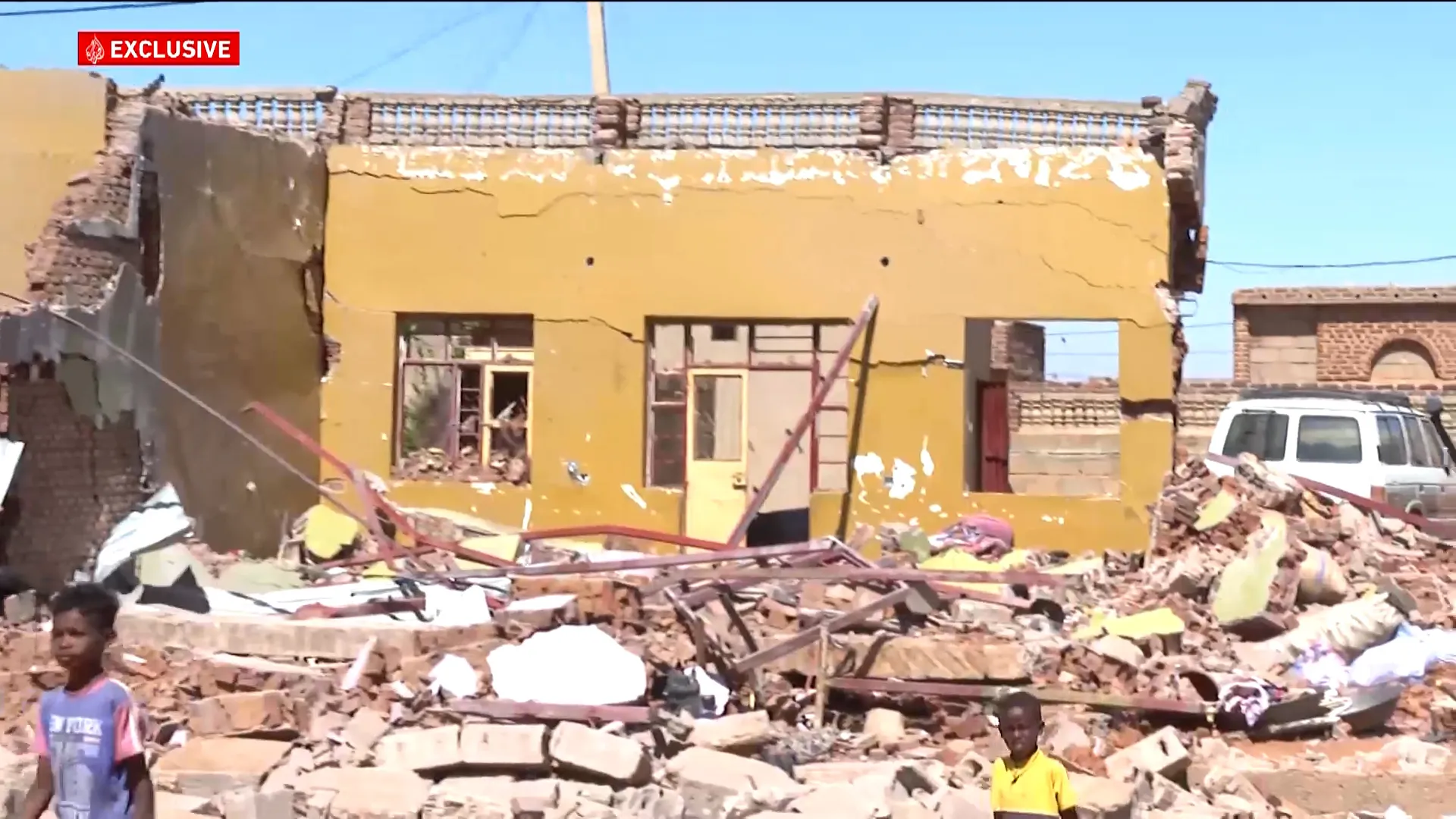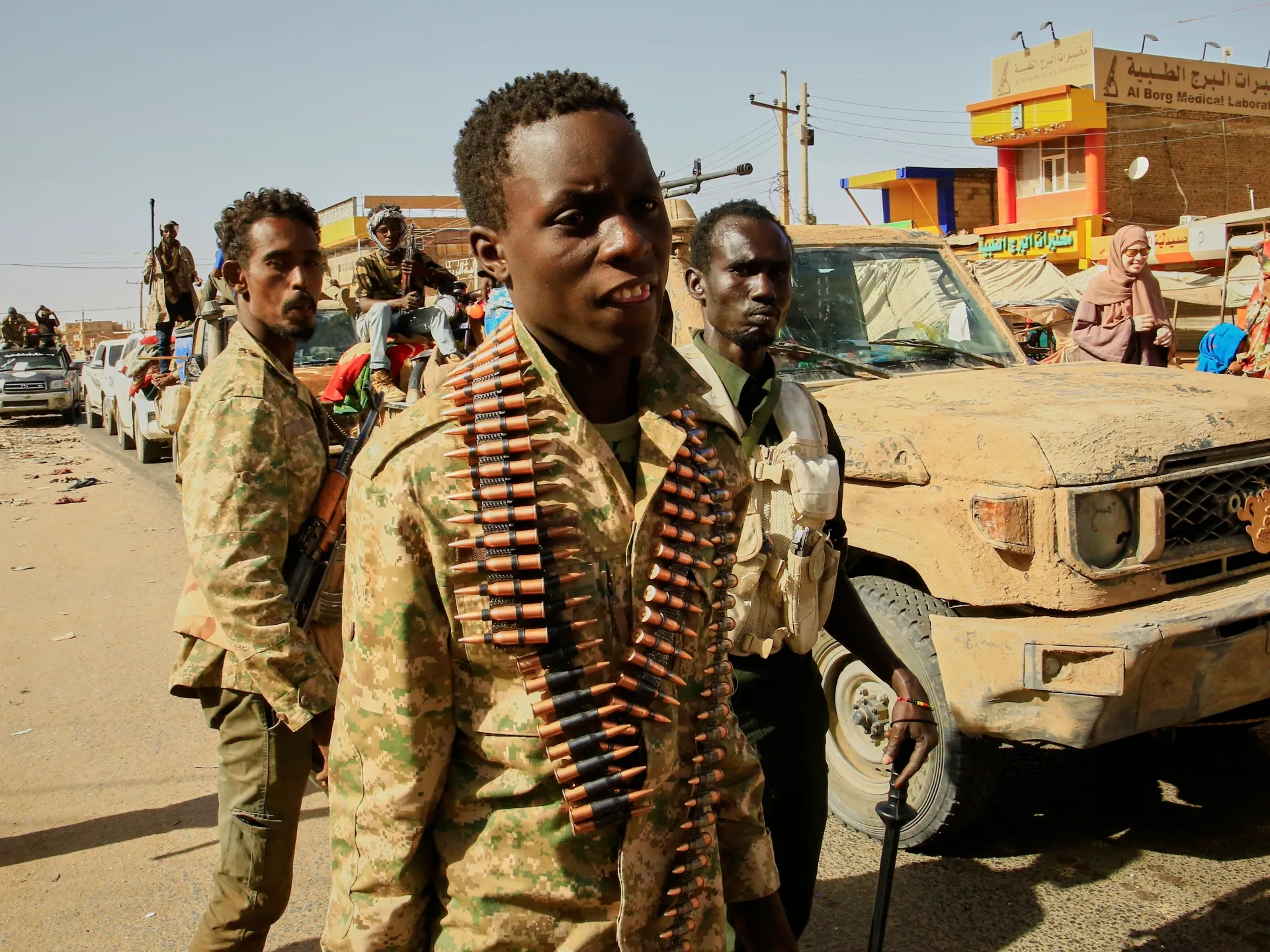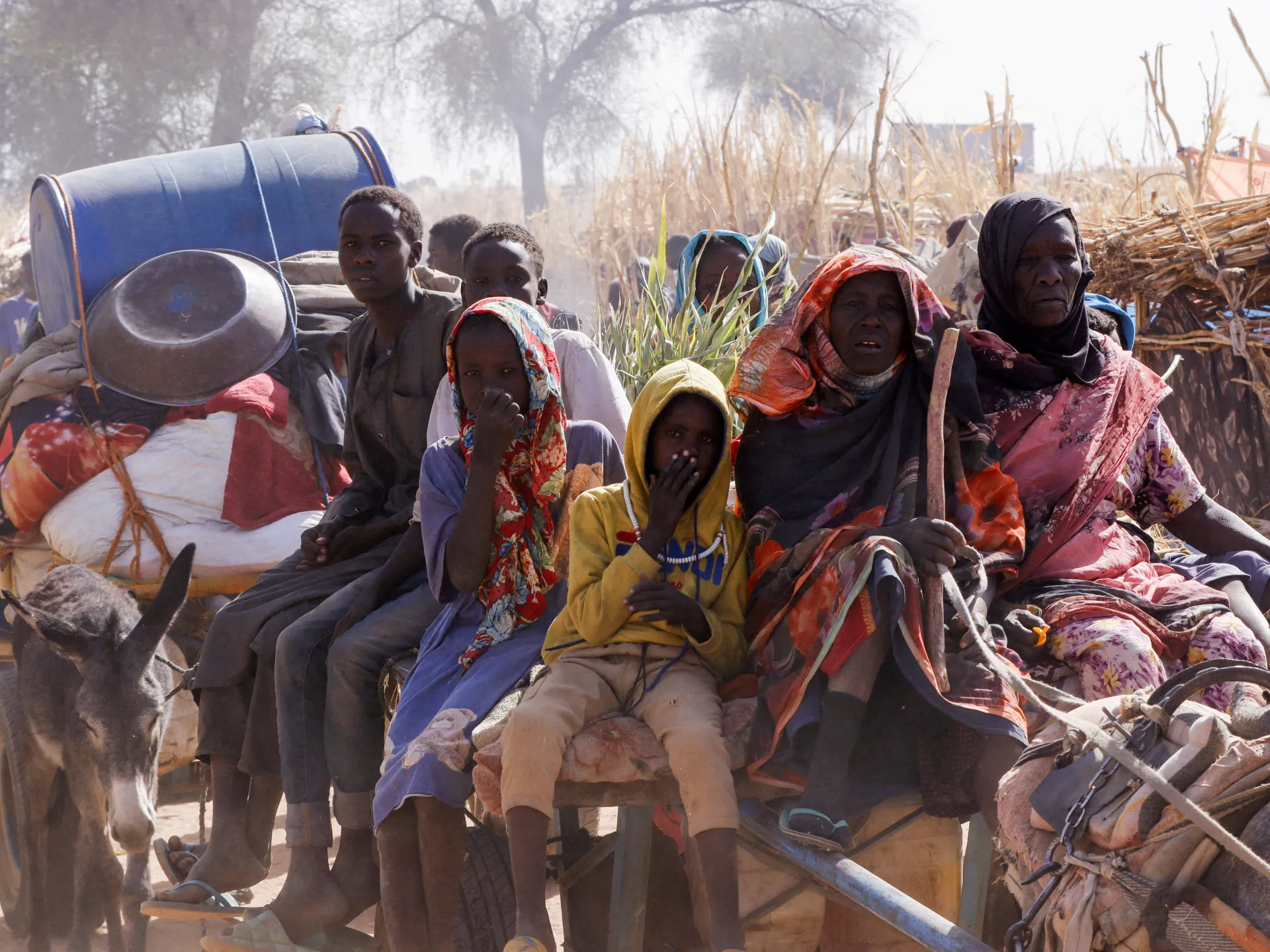Displaced Sudanese families in the war-torn Darfur region are grappling with a dangerous measles outbreak that is spreading rapidly, a Doctors Without Borders (MSF) official warns.
Dr Ali Almohammed, an MSF emergency health manager, told Al Jazeera on Monday that the group has been “overwhelmed” by measles cases arriving each day at the Nyala Teaching Hospital in South Darfur, where MSF provides paediatric and maternal healthcare.
Recommended Stories
list of 4 itemsend of list
“We have 25 beds [in] isolation for measles, but every day the number of cases is increasing,” Almohammed said in an interview from Amsterdam.
“The capacity of MSF to respond to all the needs of the people in Darfur is really limited. We cannot cover everything. Yes, we are trying to focus on the most lifesaving medical care, but still, our capacity is also limited,” he said.
The outbreak of measles, a vaccine-preventable virus, comes as violence between the Sudanese military and the paramilitary Rapid Support Forces (RSF) in the western region of Darfur and neighbouring areas has surged in recent weeks.
More than 100,000 people have fled their homes in el-Fasher, the capital of North Darfur State, after the RSF seized control of the city in late October after an 18-month siege.
The United Nations recently warned that Darfur has become “the epicentre of human suffering in the world” and UN and other humanitarian agencies have stressed that trapped civilians lack medicines, food and other critical supplies.
More than 1,300 new cases
According to MSF, more than 1,300 new measles cases have been reported in Darfur since September.
An extremely contagious virus, measles causes high fevers, coughing and rashes.
It is particularly dangerous for children under age five because it can cause serious health complications, according to a fact sheet from the United States Centers for Disease Control and Prevention.
This week, MSF said that while nearly 179,000 Sudanese children had been vaccinated against the disease over six months last year, they are only a fraction of the 5 million who are at risk.
The organisation said it is not able to operate in most of North Darfur, including el-Fasher, or in East Darfur as a result of the ongoing conflict.
Almohammed also warned that other preventable diseases, such as diphtheria and whooping cough, are now appearing in Darfur with the number of vaccines arriving just a “drop in the ocean” of what’s needed.
According to MSF, shipping vaccines has been difficult due to ongoing violence as well as “significant administrative and bureaucratic hurdles”.
“We urge authorities to immediately eliminate all bureaucratic and administrative barriers to transporting vaccines throughout Darfur,” the organisation said in a statement.
“At the same time, there must be greater urgency from UNICEF to coordinate efforts to increase the transport and delivery of vaccines, syringes and the necessary supplies.”
Attacks on healthcare
Meanwhile, attacks on healthcare facilities in Sudan have worsened the situation for civilians and medical personnel.
On Saturday, the Sudan Doctors Network said the RSF released nine medical workers from detention in Nyala in South Darfur out of a total of 73 health workers who had been detained by the paramilitary group.
The network welcomed the move as a “positive” step but called for the release of all detained medical workers and civilians without exception.
On Friday, the World Health Organization said attacks on healthcare facilities in Sudan have killed 1,858 people and wounded 490 since the conflict began in mid-April 2023.
At least 70 health workers and about 5,000 civilians have been detained in Nyala in recent months, it added.
A day earlier, the Sudan Doctors Network said 234 medical workers have been killed, 507 injured and 59 reported missing since the war began.


